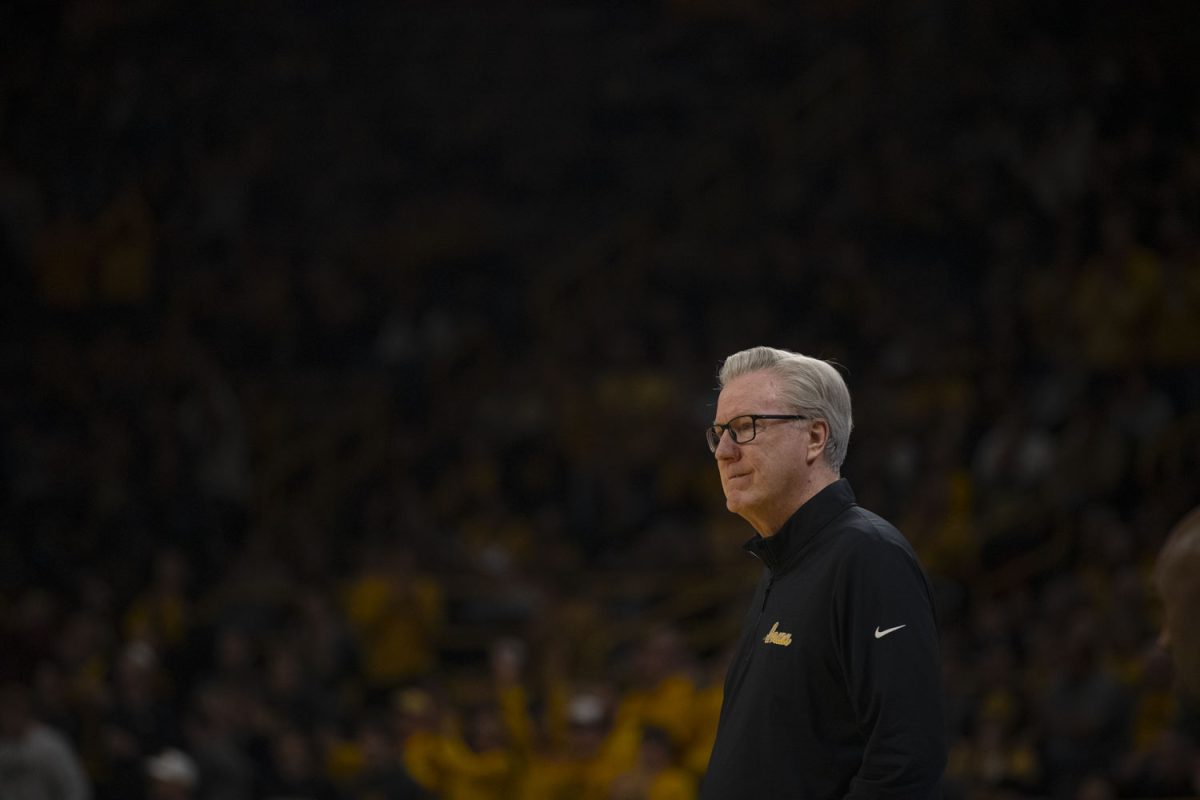Each time I visited the Iowa State Fair as a little kid, my dad would always echo his famous warning when animal waste was approaching my right foot.
“Watch where you’re walking,” he always said.
Fran McCaffery probably wishes he could have heard that quote 15 years ago, because he was handed the keys to an Iowa men’s basketball program that might as well have been covered in waste when he arrived in Iowa City in 2010.
To say the Hawkeye program had fallen on hard times would be an understatement. Steve Alford was hired in 1999 to take Iowa to heights it felt it wasn’t going to achieve under Tom Davis, and his highly-egotistical personality proved to be a disaster. Alford netted only three NCAA tournaments in eight seasons, and bolted for New Mexico after numerous controversies, namely the Pierre Pierce scandal, destroyed any good reputation the Hawkeye faithful once gave him.
Todd Lickliter arrived in 2007 fresh off winning National Coach of the Year honors with Butler, but his tenure was anything close to that. Lickliter compiled a putrid record of 38-58 in three seasons and was fired after the 2009-10 season.
The failures of both of those coaches left McCaffery in a challenging spot, but he quickly turned things around. Iowa suffered another losing season in 2010-11, but was competitive in many games, knocking off Michigan State and Purdue at home. The Hawkeyes built off of that momentum in 2011-12, advancing to their first postseason since the 2005-06 campaign with a National Invitation Tournament berth.
And by year four, McCaffery had Iowa back where it belongs – in the NCAA tournament.
McCaffery continued to take the Hawkeyes to regular Big Dance appearances for the remainder of his tenure, but that didn’t seem to satisfy an Iowa fanbase that probably forgot how to spell the word tournament after that brutal eight-year drought. And not only was McCaffery winning, he was doing so with some of the best players to ever don the Black and Gold.
Names like Luka Garza, Payton Sandfort, Aaron White, and the Murray twins were all lightly recruited out of high school, but McCaffery’s strong eye for talent led them to Iowa City and resulted in some of the most exciting Iowa basketball teams of the 21st century. If that’s not impressive, then I’m not sure what is.
McCaffery also did some amazing things off the court. He always honored the legacy of Chris Street, a legendary power forward in the ’90s whose career and life were tragically cut short due to an automobile accident in 1993. Neither Alford or Lickliter celebrated Street in any way, but McCaffery made sure to invite the Street family to Carver-Hawkeye Arena and recognize Street’s legacy each and every season. A commemorative plaque of Street now sits just outside the Iowa locker room.
McCaffery and his wife, Margaret, were also heavily involved in raising money and awareness for cancer research. The cause was near to McCaffery’s heart, as both of his parents succumbed to the disease and his son, Patrick, had a rough bout with thyroid cancer as a 14-year-old in 2014. McCaffery was on the Coaches vs Cancer National Council, and was awarded with the Fighting Spirit Award by the American Cancer Society in 2015.
Much of the national media focused in on McCaffery’s infamous sideline arguments with officials, but they failed to realize that McCaffery is deeply loved and respected by every single one of his players. Once his firing hit the news last weekend, many players payed emotional tributes to him on X, a sign of that enormous respect.
McCaffery’s tenure certainly had some flaws. He was never able to lead Iowa to the second weekend of the NCAA tournament despite the incredible careers of those aforementioned players, and fans complained that McCaffery didn’t do enough to connect with them.
But if you peel back the drapes, McCaffery’s 15 years in Iowa City should still be considered a success. A school-record 297 wins, one Big Ten Tournament title, eight NCAA tournament appearances, four consensus first-team All-Americans is an impressive resume considering how pathetic the Hawkeye program was when he arrived.
McCaffery’s tenure didn’t end how anyone envisioned it to conclude, but his work in rebuilding this program back to respectability after it experienced some of the darkest days it will likely ever witness should be praised by Iowa fans. It will probably take a few years for most of the Hawkeye faithful to share that same sentiment, but once they finally do, McCaffery will get his well-deserved standing ovation in Carver-Hawkeye Arena.



